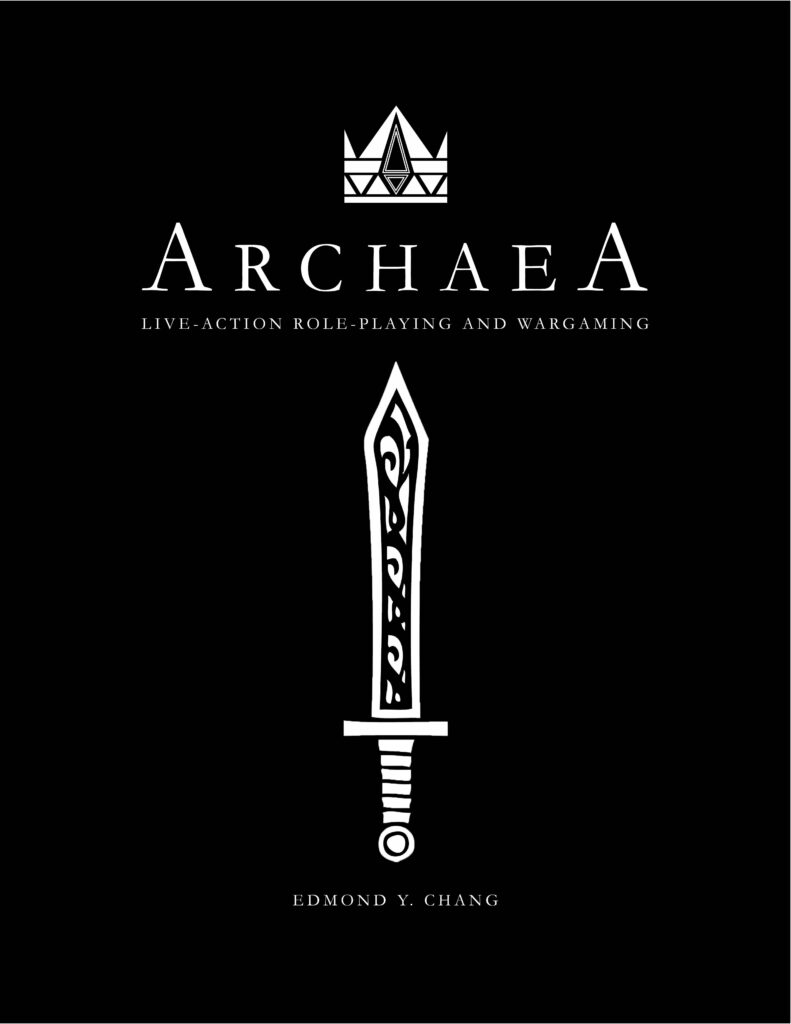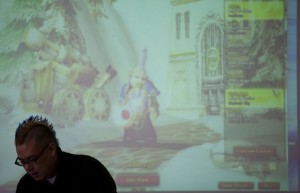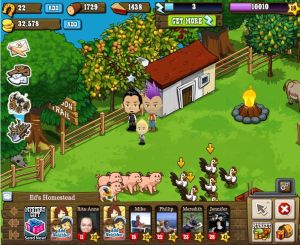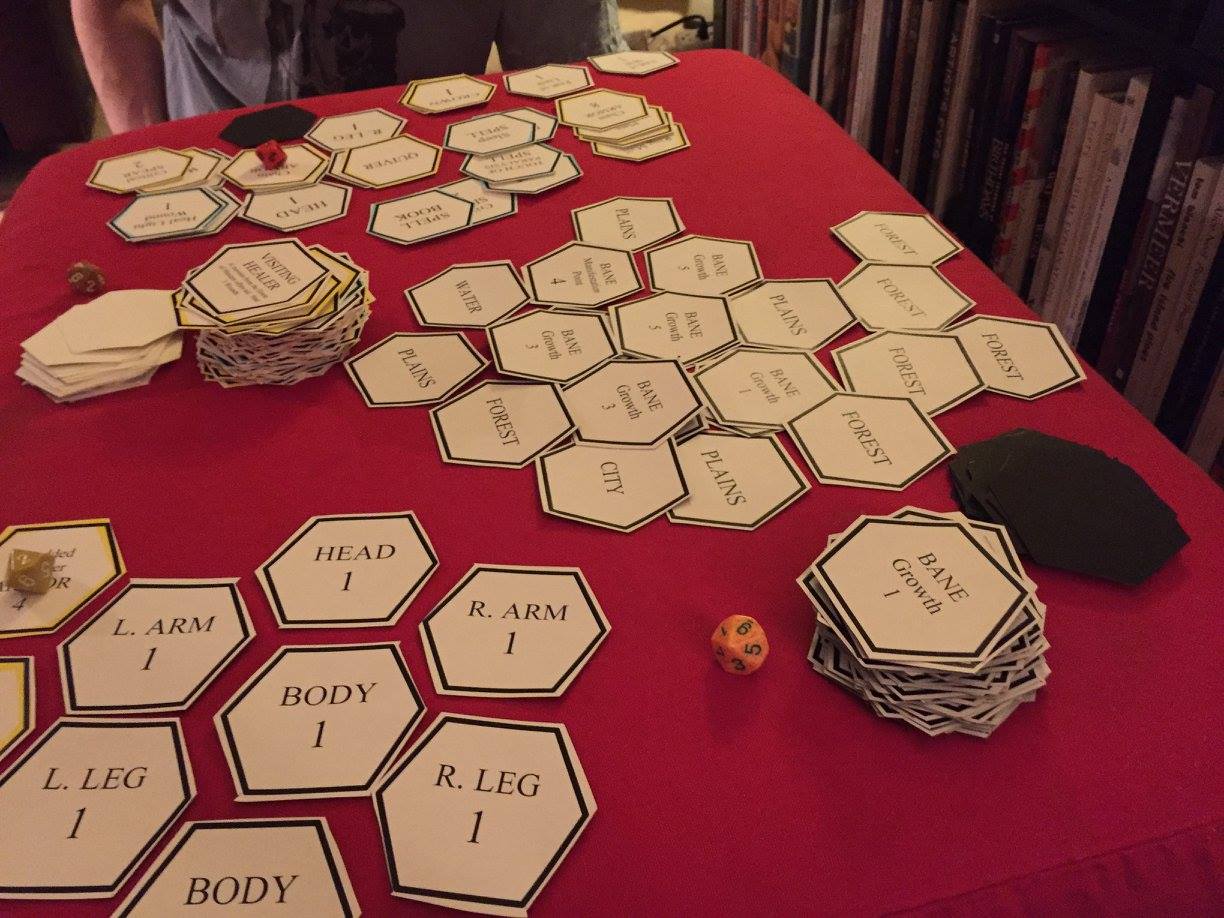Play has been central to my avocational and intellectual life. I have played in many ways–playing pretend, acting in a play, playing a role, playing games–and I have incorporated play into the ways I learn and the ways I teach. Despite the recent attention to gamification, particularly in education, no one needed a quest or a badge to understand the way play is a part of and is change and experience and critical thinking and understanding. (At least, if they were really paying attention and had an ounce of curiosity about the world.) This is not to say that we shouldn’t figure out ways to optimize (not maximize) play. For me, I realized–probably from watching like-spirited friends, teachers, strangers–that wanting to know or see or understand or explore was incentive enough. Whether I was playing in imagination, playing in language, playing on the field, playing on the living room floor, or playing on the computer, I discovered that I could transfer ideas and skills and inspirations from one magic circle to another or that I could combine them and overlap them in ways that illuminated connections, disagreements, and transformations. Play is all about interdisciplinarity. Therefore, I try to make sure I play everyday.
Digital Games
Online, I generally play MMORPGs like World of Warcraft (though because of the demands of dissertating starting my new position as Assistant Professor at Drew as Visiting Assistant Professor in Women’s and Gender Studies at the University of Oregon as Assistant Professor being an Associate Professor of English at Ohio University, I am currently on long hiatus, only getting on for a class or in order to do a little research). When I used to play WoW, I logged on as:
Medivh Server
Otters, Gnome Mage
Ghosthand, Human Priest
Queerin, Night Elf Druid
Realistically, my time play has been limited to shorter games, games that I can pick up and put down and pick up again, which usually means single player RPGs and indie games. If I am lucky, I get to teach a class that allows me to schedule gaming time. Recent titles include Animal Crossing: New Horizons, The Legend of Zelda: Breath of the Wild, and the sequel Tears of the Kingdom. In fact, I have written a couple of short pieces on ACNH for Gamers with Glasses–“Cruising Animal Crossing” and “Spoopy Monsters, Animal Crossing, and Fear Itself“–as well one on Tears of the Kingdom: “Monsters Are Imperfect Mirrors.”
I play a lot of web-based games and indie games. They don’t require a lot of investment in time and concentration, and they are great for teaching because they are accessible in multiple ways. Some of my favorites include (there are too many to name):
- ImmorTall (Pixelate): https://www.newgrounds.com/portal/view/529320
- Lim (merritt k.): https://merrittk.itch.io/lim
- Loved (Alex Ocias): https://ocias.com/works/loved/
- Flower (thatgamecompany): https://thatgamecompany.com/flower/
- A Night in the Woods (Infinite Fall): https://store.steampowered.com/app/481510/Night_in_the_Woods/
- Atuel (Matajuegos): https://matajuegos.itch.io/atuel
- Succulent (Robert Yang): https://radiatoryang.itch.io/succulent
A lot of these games are covered in a book I co-authored with Timothy Welsh entitled Video Games, Literature, and Close Playing. The book introduces the practice of close playing or playing critically and analytically through more than twenty different games; each chapter close plays one game to introduce different game studies and literary studies concepts.
Finally, in the past, I have also been interested in online social networking games like Farmville and Frontierville, particularly thinking about casual gaming, gamification as commodity phantasmagoria, and the narratives of friendship, connection, and collaboration that obscure technonormativities like racism, sexism, and homophobia. In fact, one of my dissertation chapters is on gamification and games like Frontierville, which is in process to becoming an article in an edited collection on video games and sexuality. Some of this material has been published as a standalone article: “Love is in the Air: Queer (Im)possibility and Straightwashing in FrontierVille and World of Warcraft” in QED: A Journal of GLBTQ Worldmaking.
Tabletop Role-Playing Games and Other Analog Games

Who doesn’t like to roll dice? I am an avid tabletop (or pen-and-paper) gamer and have played systems of many colors and stripes, particularly Dungeons & Dragons, Call of Cthulhu, Star Wars, Champions, Vampire: The Masquerade, and Traveller. My favorite genre tends to be high fantasy, but I will noodle around other stories, characters, worlds, and systems. I also tend to like “crunchy” systems–but not too crunchy as to get in the way of narrative, role-playing, and accessibility–so maybe “crunchy light.”
Currently, I am the game master for two tables: one is playing Call of Cthulhu (set in the contemporary era but also home-brewed quite a bit) and the other is my TTRPG. For the past twenty years (plus), I have played a game of my own design and writing called Tellings. Tellings is a point-based, skill-based high fantasy system. Wherever I go, wherever I live, I always try to put a regular gaming group together. (When I first moved to Seattle–sans gaming group–I actually ended up teaching a 2-credit class on tabletop RPGs just to be able to play Tellings.) The 25th Anniversary Edition of the Tellings rulebook is available on Amazon.

I also designed and wrote a live-action role-playing game called Archaea. Archaea is a point-based, skill-based high fantasy padded weapon wargaming system (I hate the term “boffing). I ran an Archaea group in the Maryland-DC-Virginia metropolitan area for seven years. Alas, organizing and staging a LARP is much more time and resource intensive than pulling a gaming table together. However, as with my love for Tellings, I found a way to play Archaea by offering a 2-credit introduction to LARP class at the University of Washington for five straight Spring Quarters. I hope to bring the LARP class to the University of Oregon. The Archaea Live-Action Role-Playing Game rulebook is available on Amazon.
Finally, I am currently in the design and playtesting process for a card game based on my LARP game called Archaea Bane. I wanted to create a cooperative, semi-autopoietic card game. And I wanted a game that foregrounded cooperative play. Archaea Bane has gone through several iterations so far and hopefully will land on a stable base deck soon.



I’m wondering now if we should’ve made Tellings a strictly percentile-based system. And why the hell haven’t you found a publisher yet? If “Dogs in the Vineyard” got distribution…
In any case, hello from Long-Ago and Far-Away.
Hello, Arthur! Long time, long time. I hope you are well, and we’ll have to make a point to do a little catching up (even via the virtual). Well, Tellings continues to shift and grow. The plan–and we know how those go–is to do a good scrub down this summer and self-publish via Amazon CreateSpace. So, we’ll see how that goes. (I don’t care for all percentage based systems per se but see the draw…)